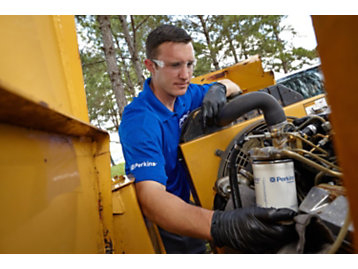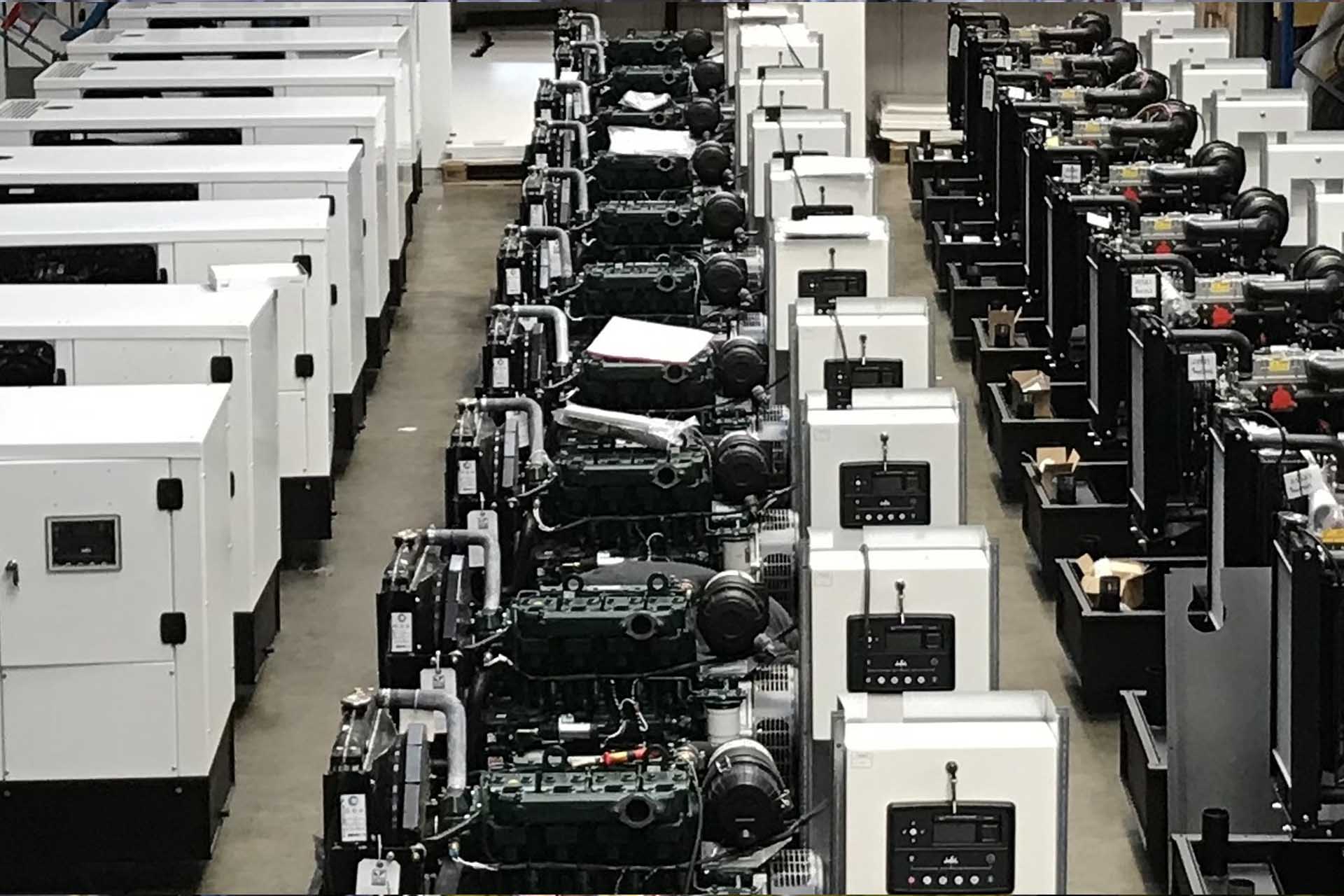Maintenance tips and tricks
Engine Maintenance Tips and Tricks, Chapter and Verse
A planned preventative maintenance regime will reduce your running costs and prolong the life of your engine. In addition to the scheduled maintenance that all engine owners should carry out, there are a number of other hints and tips that will help keep your engine in excellent working order. There are two types of engine wear: normal wear is expected and predictable; abnormal wear may be the result of improper maintenance or operating techniques, and can adversely affect your productivity and operating costs. These tips and tricks are intended to help you plan for and predict normal wear – and avoid abnormal wear. This information is not intended as a substitute for your engine’s operations and maintenance manual (OMM) or direct advice and recommendations from your parts and service experts.
Inspections
A good inspection program combines your daily inspections with periodic in-depth analysis. These inspections allow you to:Locate potential problems before they lead to major repairs and significant costs; Schedule engine maintenance and repairs; and Plan and control your operating costs and by fitting preventative maintenance into your scheduled downtime
Perform regular checks
Your daily inspection routine should include a complete visual and operational check of your engine. Today’s engines generally indicate problems with advanced warning signs, such as excess smoke, loss of power, hard starting and overheating. It’s important that you and your operators recognise and understand these repair indicators.
Follow an inspection schedule
Service meter hours provide the best way to structure checks and inspections. These scheduled checks can help you identify potential problems before they become serious. Do not, however, substitute these checks for the specific information located in your OMM for each engine model.Further:
If the engine works in a very dusty environment or other adverse conditions, reduce the intervals between maintenance. Consider renewing the filters and oil more regularly than the service intervals to ensure that the inside of your engine remains clean;Don’t put fuel in the tank while the engine runs – unless it’s absolutely necessary – because it can introduce air into the fuel system;
If the coolant system is to remain empty temporarily after flushing, drain the oil cooler and fill it with 165 ml (1/3 pint) of antifreeze. This will protect the oil cooler against frost if any clean water drains down from the water jacket when the machine is moved;
Don’t allow dirt to enter the fuel system. Before a connection is disconnected, clean the area around the connection thoroughly. After a component has been disconnected, fit a suitable cover to all open connections;
With common rail fuel systems, be aware that the fuel system remains pressurized after the engine has been shut down for a short period of time. Allow 60 seconds for the pressure in the system to decay before carrying out any maintenance or inspection procedures on the engine. Certain engines may require more time than the 60 seconds . . . perhaps up to 10 minutes; and
Always check the condition of O-rings and rubber seals when filters or plugs are removed, and consider replacement. Sump plug seals should be changed every oil change
Scheduled maintenance prolongs engine life
Regular maintenance is the best way of ensuring your engine lasts as long as possible. There are regular checks that you should carry out in line with the recommend schedules to do this. You can download maintenance schedules if you do not already have them.Maintaining your engine is the key to its optimum performance. Slight changes in performance can easily go unnoticed, even a drop of 20 percent in performance can happen before the operator notices. Missing service intervals can lead to reduction in performance, let alone the worst case, failure of a vital part.
Each engine we supply comes with a detailed list of checks for you to carry out at set intervals. The performance checks required will vary by engine type and operating conditions, so it is wise to ensure the checks and frequency are right for your engine.
The regular checks that you need to carry out fall into daily and weekly categories, along with regular servicing and specified intervals. They all have the same aim of ensuring that your engine runs as long as possible at the maximum efficiency. No two schedules are exactly the same, so you should always check the schedule for your particular engine.
It’s also worth noting that the checks either relate to specific calendar times or the hours your engine has been running. Service intervals are based on calendar times or hours running. Remember that the check should be done, whichever occurs first. Therefore checks should take place far more often on an engine in almost constant use than for one used occasionally.
Importance of good oil quality
Engine oil is often considered as just oil, and many believe all oil is the same. While oil standards such as viscosity, for example 15W-40 and the API or ACEA standards give a guide to specification, they are only minimum standards.Engine oil is in fact a complex product, consisting of one or several base oils and up to 15 different additives which provide protection and ensure effective working for the engine. The additives portion can make up to 25 percent of the oil volume. Using a poor quality oil can:
Increase oil viscosity during service life leading to insufficient lubrication during start up and operation
Allow particulates and soot to circulate and deposit onto rings and liners causing wear
Not control acidification of the oil from thermal breakdown, leading to corrosion
Many of these changes happen over a long period and results will not be seen immediately, but the loss of power and internal damage leading to a earlier rebuild/overhaul can be costly in the long term.
Daily checks:
Operator checks on a daily basis are part of good maintenance practice to protect your machine investment and includeCooling system coolant level;
Air pre-cleaner, empty if necessary;
Engine oil level check;
Fuel system primary filter check;
Drain water from the water separator;
Driven equipment, belts and electrical system check; and
Walk-around inspection of the machine, especially guards and drive system.
Every 50 service hours or weekly checks include checking the fuel tank and draining water and sediment, if necessary.
Importance of regular water draining
All fuels contain some water in suspension. Diesel fuel is less refined and will hold a much larger amount. Water in fuel in off-highway engines come from either condensation within fuel storage, the fuel tank, free water from agitation or poor fuel housekeeping.Significant levels of water can cause problems such as
Corrosion of fuel systems leading to excessive injector wear
Filter plugging
Sudden engine cooling
Reduced energy and lower power
Freezing of fuel systems (most fuels freeze at less than -20 degrees Fahrenheit, water freezes at -32 degrees Fahrenheit).
A simple rule of thumb is, if the fuel is hazy or there is evidence of free water, then there is too much water in the fuel system.
Good housekeeping is important, such as:
Periodic draining of water in fuel storage tanks
Maintain seal integrity of fuel storage tanks
Allow settling time after a fuel delivery
Prevent or avoid condensation from cooling/warming
Ensure tanks are sealed to prevent rain water contamination.
And a little time spent every day draining water from the water separator on the fuel filter can save thousands of dollars in replacing damaged injectors.
Engine signs of failure
Today’s engines are tough and dependable – but they do benefit from regular care and attention. You probably already carry out daily checks, which should include a visual review as well as an operational inspection and water drain. These checks, along with in-depth weekly and monthly inspections of your engine, will help flag up potential problems before they lead to major repairs.You may already be aware, but if you are in tune with your engine, it will generally give you advance warning if something isn’t quite right.
For instance, there might be more smoke than normal, increased fuel consumption or a slightly different engine noise.
And don’t forget. Your local distributor is almost always available to help with technical analysis inspections, engine tune-up or maintenance to keep your engine in prime condition.


